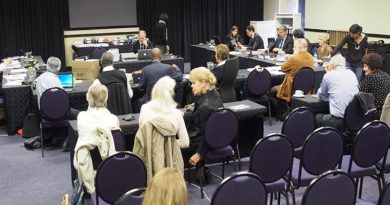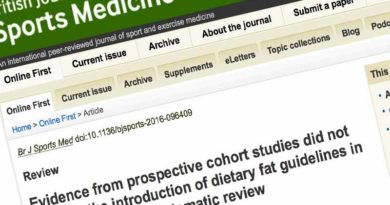Two peaches lower the risk of breast cancer by 41%? Puh-lease!
I was on the circulation list for a recent email entitled “Breast cancer: 2 peaches/week 41% lower risk”.
The email opened by saying :
“Women who ate two servings of peaches per week had a 41% lower risk of breast cancer over the next 24 years according to a study from the Harvard School of Public Health in Boston, Massachusetts, USA.
“Women who ate one serving of blueberries per week had a 31% lower risk of breast cancer over the next 24 years.
“This study followed 75,929 women (part of The Nurses’ Health Study), 38- to 63-years-old at baseline, and followed them for up to 24 years.”
Here is the original paper. (Ref 1)
My first reply was
Association, not causation.
Relative risk, not absolute.
Nonsense, not science!
The more considered reply develops these further
Association, not causation
As Dr Malcolm Kendrick beautifully says “Association does not prove causation, but lack of association disproves causation”.
The way that science should work is that epidemiology/observational studies suggest association and then possible associations should be tested in a sufficiently powered, long enough, randomised controlled trial to see if there could be causation – changing the hypothesised thing alone. We have largely abandoned this step in science since, and including, the Seven Countries Study. We now see an overweight sedentary person and assume that being sedentary made them overweight. What about being overweight made them sedentary? What about a lousy high-carb-following-gov-advice diet made them both overweight and low in energy? What about a thyroid condition led to both?
If we observe association, we should look for a plausible mechanism to see if the intervention would be worth testing. If (to use another Dr Malcolm fab example) we push someone out of an airplane without a parachute we can do an n=1 to say that being pushed out of an airplane without a parachute causes death and jumping out of a plane with a parachute rarely causes death and so the parachute has a plausible mechanism in life extension.
What is the plausible mechanism with peaches and breast cancer?! I would not be surprised if women eat more peaches then men and substantially more women develop breast cancer – so where does that leave us? Is it antioxidants? Coffee and cocoa powder are massively higher in antioxidants than fruit so there could be a better intervention. Is it general nutrition? Fruit is pretty rubbish for nutrients compared to animal foods and dark green veg. I can’t even see a plausible mechanism.
Relative vs. Absolute risk
This study followed 75,929 women, 38- to 63-years-old at baseline, for up to 24 years. During this time there were 792 cases of post-menopausal breast cancer recorded. The study title did clarify that it was solely looking at post-menopausal cancer. The email I received didn’t clarify this.
That’s an incident rate during the 24 year study of 1.04%.
In any one year, the incident rate was 0.043%. Can you even get your head round such a tiny number?
So now we introduce the relative risk. The following table is extracted from Table 3 in the paper. It tells us the incidents among consumers of peaches/nectarines – don’t forget the nectarines.
The study used women who never eat peaches/nectarines as the base line. The baseline is given a risk ratio of 1.0. Relative to this group, those who had peaches up to a couple of times a month had exactly the same risk ratio – 1.0. Those who had peaches more than a couple of times a month but fewer than once a week had virtually the same risk ratio: 0.98. Those who had peaches between once and twice a week had a risk ratio of 0.87 BUT the confidence interval was 0.66-1.15, which includes the baseline number of 1.0 and thus we can’t be sure that we are not seeing the same result as at baseline and therefore we call this not significant.
The only significant result (where the confidence interval excludes 1.0) is the two or more peaches/nectarines a week:
| Peaches/nectarines | Never | Up to 2/mth | >2/mth to <1/wk | 1/wk to <2/wk | 2+/wk |
| Breast cancer cases | 74 | 306 | 165 | 220 | 27 |
| Person years | 118,385 | 445,096 | 233,514 | 353,017 | 71,025 |
| Adjusted relative risk (RR) | 1.0 | 1.0 | 0.98 | 0.87 | 0.59 |
| Confidence intervals | 0.77-1.29 | 0.73-1.30 | 0.66-1.15 | 0.37-0.93 |
1.0-0.59 = 0.41, which is where the 41% headline comes from.
The incidents and person years tell us the following:
We know from the overall numbers (792 incidents from 75,929 women in 24 years) that, in any one year, the incident rate was 0.043%.
This incident rate was 0.062% for never eat peaches and 0.038% for eat more than 2 peaches a week.
Are you any more able to get your head round those numbers?
No – me neither.
Now how does the 41% risk headline, with no explanation offered, look?!
Table 3 also tells us that they did not adjust for education, which is a well known marker for being better off…
Plausible mechanism
If this study told us anything (apart from the fact that researchers continue to NOT understand association vs causation and relative vs absolute risk) it may have confirmed what we already know, which is that better off people enjoy better health.
Take UK regional life expectancy. The lowest for men and women occurs in Glasgow with life expectancy of 71.6 and 78 years respectively. The highest for men and women is found in Kensington and Chelsea – 85.1 for men and 89.8 for women.
Another interesting finding of the study was that there was not even an association with breast cancer and other fruits and vegetables. None. Zippo. Only peaches/nectarines and blueberries have magic breast cancer prevention plausible-mechanism-unknown properties. Peaches are posh fruits – P for posh. Passion fruit, Papaya, PawPaw, Pequi, Persimmon, Pewa, Pineapples, Pitahaya, Pitomba, Pomegranates, Pashminas (ho ho).
Q) Would you more likely find peaches in a fruit bowl in Kensington and Chelsea or in Glasgow?
Did the researchers not think – we’ve just reinforced better off = better health? And we should research health inequalities? No – the researchers want to carry on researching nonsense.
The abstract ends with these words: “These results are considered exploratory and need to be confirmed in further studies.” That’s academic speak for “we need funding, so please give us some money.” Bet the Blueberry Association has been in touch already.
Ref 1: Fung TT, Chiuve SE, Willett WC, Hankinson SE, Hu FB, and Holmes MD. Intake of specific fruits and vegetables in relation to risk of estrogen receptor-negative breast cancer among postmenopausal women. Breast Cancer Res Treat, 2013 Apr; 138(3): 925-930.



Oh dear, oh dear, oh dear! But thanks for the laugh!
Mind, I think I’m laughing in shock that such rubbish could be published and then shared.
Keep up the good work exposing this sort of misinformation.
~ Jacqui
Obviously Zoe you are missing the point. They only have tinned peaches in Glasgow!
But seriously I also came across this from Prof Fung, Soda’s and Hip Fractures
http://www.simmons.edu/blogs/300thefenway/2014/08/simmons-professor-links-soda-consumption-to-hip-fr.php?psrc=hmpg
Definitely a prize winner!
Hi John – tinned peaches – brilliant!
On the other one “Each serving increase in soda consumption was associated with 14% risk.” So 7 servings a day and you are guaranteed a hip fracture?!
This is where nonsense leads us to!
Bye for now – Zoe
The 0.41% statistic reminds me of the “51% percent decrease in heart attacks for statin users.” Except, upon reading the study, it was actually HALF of ONE percent, 0.05 which changes everything.
I also don’t understand why these studies don’t break people down into ethnicities for risk and outcomes. We know that certain ethnic groups responded very differently to being overweight – the Asian community for example has an increased risk of diabetes compared to a non Asian in the same situation, so how can any study into food related illness be relevant when we don’t adjust for ethnic differences? Be it fruit or anything else.
I’m now almost entirely convinced that all these studies are being released and streamed into our news media to utterly confuse and befuddle the general population so that we buy into the government approved food ‘pyramid’ and eating and pharmaceutical recommendations.
“No – the researchers want to carry on researching nonsense”.
Or, more reasonably, perhaps they want to go on pursuing a line of study for which funding can probably be obtained and which will enable them to go on publishing results from time to time.
Everyday life for the non-talented, unambitious career scientist.
Yes, and smoking three packs of cigarettes a day can reduce Alzheimer’s by 99%. Do people actually get paid to produce this twaddle ?
Kind regards Eddie
What do you think? …of course.